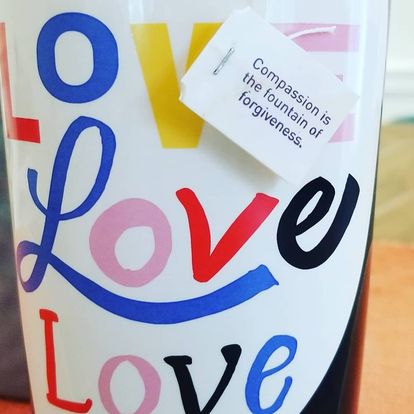Therapy is essential for growth.
Hitting a plateau or feeling unfulfilled is a common experience at midlife. It is normal to reassess what is working and what is not, and to want to reclaim one’s time, energy, and joy.
Megan believes that therapists benefit from undergoing therapy themselves. Clients can only go as deep and as far as their therapists have gone. This sentiment is echoed by Elizabeth McCormack, who shares her own experiences with therapy.
Elizabeth reveals that she had her first therapy session in high school, a time when she was going through the challenges of coming of age and dealing with the complexities of her parents’ divorce. However, she quickly realized that the therapist she saw did not understand her experiences as a young teenage girl, and she discontinued therapy after a few sessions.
Despite this initial negative experience, Elizabeth later pursued therapy during graduate school when her father passed away. She felt that it was necessary to work through the unresolved issues in her relationship with her father. She also has continued therapy on and off in different settings, depending on the circumstances she was facing.
Elizabeth emphasizes the importance of the therapeutic relationship and finding the right therapist. She advises her clients to give therapy a few sessions and to trust their instincts. If they feel uncomfortable or do not trust their therapist, she encourages them to find someone else. She believes that 80% of the effectiveness of therapy is dependent on having the right therapist.
She also acknowledges the challenges of finding the right therapist, especially during times of transition or relocation. Elizabeth shares her own difficulties in finding a therapist when she moved from state to state. She recognizes that moving is one of the most challenging life experiences and that therapy can be crucial in helping individuals navigate through these transitions.
The essential role of therapy in personal growth and fulfillment is crucial. Therapy provides individuals with the tools to navigate through challenging periods, work through unresolved issues, and manage stress and anxiety. Ultimately, therapy is a valuable resource for individuals seeking personal growth, fulfillment, and a greater sense of well-being.
Transitioning in therapy is therapeutic.
Transitioning in therapy is therapeutic because it allows individuals to learn new things, gain a different perspective, and re-narrate their story. The process of transitioning from one therapist to another provides an opportunity to explore and process past experiences, trauma, and emotions. It allows individuals to reflect on their journey and gain a deeper understanding of themselves.
One of the benefits of transitioning in therapy is the chance to learn new things. Each therapist has a unique approach and perspective, which can offer fresh insights and techniques. By working with different therapists, individuals can expand their knowledge and gain new tools for personal growth and healing.
Transitioning in therapy also allows individuals to re-narrate their story. As they move from one therapist to another, they have the opportunity to reflect on their past experiences and how they have evolved over time. They can examine their childhood, teenage years, and any traumatic events that have shaped their lives. By re-telling their story, individuals can gain a new understanding of themselves and their emotions.
It allows individuals to focus on the present and future. While it is important to acknowledge and process the past, therapy also encourages individuals to look forward and set goals for personal growth. Therapists at the Mindfulness Center, for example, are solution-focused and help clients identify where they want to be headed. By exploring the past, individuals can gain insights and knowledge that can help them navigate their current challenges and move forward in a more fulfilling way.
Therapy can be particularly beneficial for high-functioning individuals who are experiencing a point of stagnation or feeling stuck. Therapy provides a space for them to talk through their challenges and gain support from someone who understands and empathizes with their experiences. Trust is an essential component of therapy, and individuals can trust that their therapist has either been through similar experiences or has helped others overcome similar challenges.
Shift, boundaries, independence, growth, connection.
One of the key themes is the need to shift. Elizabeth emphasizes the importance of recognizing when something needs to change and taking action to make that shift. This can apply to various aspects of life, including work, relationships, and personal growth. By paying attention to how one feels and questioning their actions and motivations, individuals can identify areas where change is needed and take steps to make that shift.
Setting boundaries is another important aspect discussed in the podcast. Over-functioning, whether it be at work or in personal relationships, can lead to feelings of burnout and dependency. Elizabeth encourages listeners to examine their own behavior and question whether their helping is truly beneficial or if it is keeping others dependent on them. Setting boundaries allows individuals to maintain their own independence and encourages others to take responsibility for themselves.
Independence and personal growth are so important. The importance of allowing children to make mistakes and learn from them, even if it means experiencing discomfort. This same principle applies to adults as well. Personal growth often comes from trying new things, making mistakes, and learning from them. It is important to embrace discomfort and navigate through it in order to grow and develop as individuals.
Connection is another key theme, particularly in the context of couples therapy. Elizabeth mentions the Gottman model, which focuses on building a strong friendship and connection within a relationship. This involves actively listening, showing interest, and being present for one’s partner. By prioritizing connection, couples can strengthen their relationship and improve overall satisfaction.
Effective communication is key.
Effective communication is key in all aspects of life, especially in relationships. Megan discusses the importance of resolving conflict, understanding each other’s needs, and maintaining a strong emotional connection.
One aspect of effective communication is the ability to resolve conflict. Megan acknowledges that it is common for couples to have recurring fights or unresolvable issues. However, she emphasizes the importance of addressing these conflicts instead of letting them simmer. By having open and honest conversations about their concerns, couples can work towards finding solutions and improving their relationship.
Another aspect of effective communication is the need for open dialogue about expectations and desires. Megan mentions that many couples struggle with feeling unsatisfied in their sex lives or have different expectations regarding love and intimacy. By openly discussing these topics and seeking a third party’s perspective, couples can gain insight into what is normal and find ways to improve their relationship.
Megan and Elizabeth talk about the significance of fostering connection and maintaining a strong emotional bond. They note that it is important for couples to be friends and to continuously work on their friendship. This involves prioritizing quality time together. By nurturing their emotional connection, couples can strengthen their relationship and navigate challenges more effectively.
If you want to learn more about boundaries, communication, and therapy join us on this episode of shifting our shit as we talk with Elizabeth.
 Megan Bayles Bartley, MAMFT, LMFT, is a proud member of The American Society of Clinical Hypnosis and The International Society of Hypnosis.
Megan Bayles Bartley, MAMFT, LMFT, is a proud member of The American Society of Clinical Hypnosis and The International Society of Hypnosis.







 Kim Hamilton, MAMFT specializes in working with kids, teens, and parents to bring emotional regulation and harmony to families and households. She works from a non-judgemental, solution-focused, non-pathologizing perspective that creates win-win scenarios within relationships. Megan Bayles Bartley is excited for Kim to join the team and knows she will be a wonderful resource for your family.
Kim Hamilton, MAMFT specializes in working with kids, teens, and parents to bring emotional regulation and harmony to families and households. She works from a non-judgemental, solution-focused, non-pathologizing perspective that creates win-win scenarios within relationships. Megan Bayles Bartley is excited for Kim to join the team and knows she will be a wonderful resource for your family.


